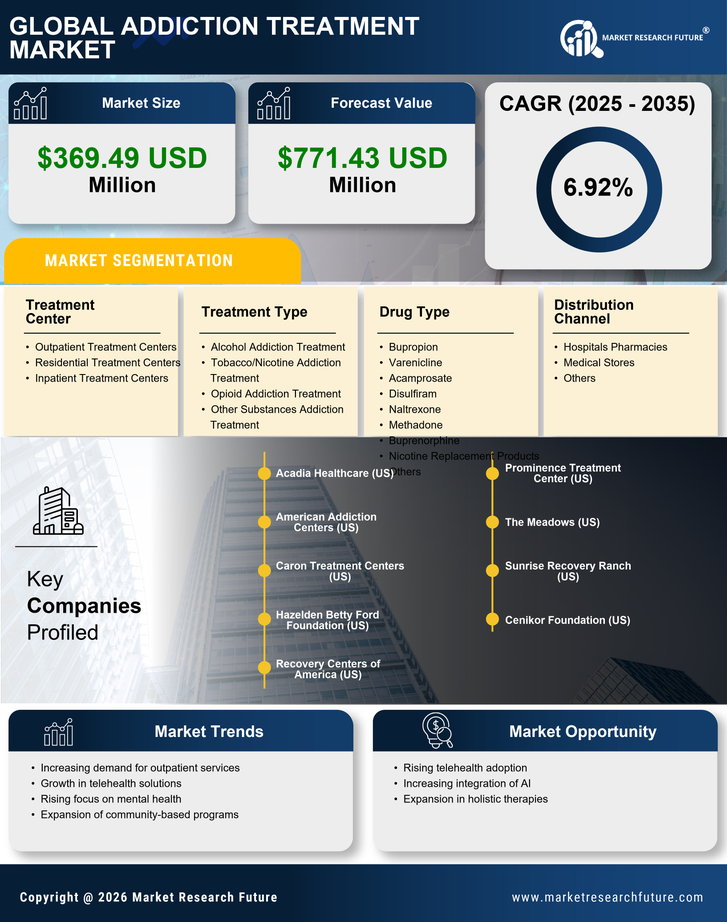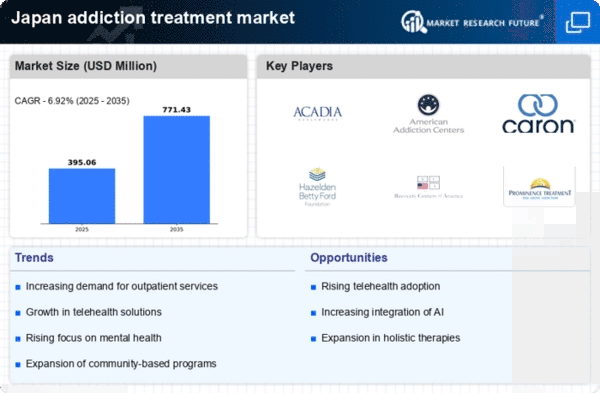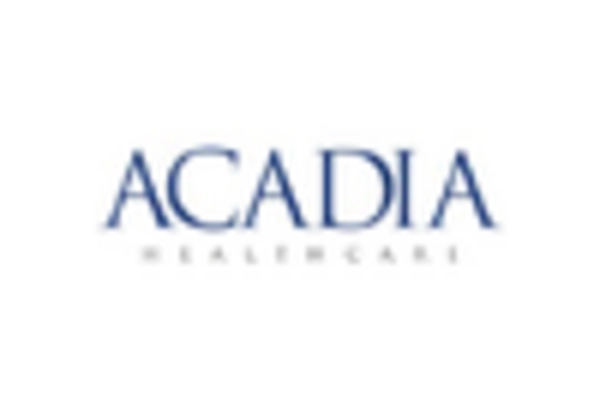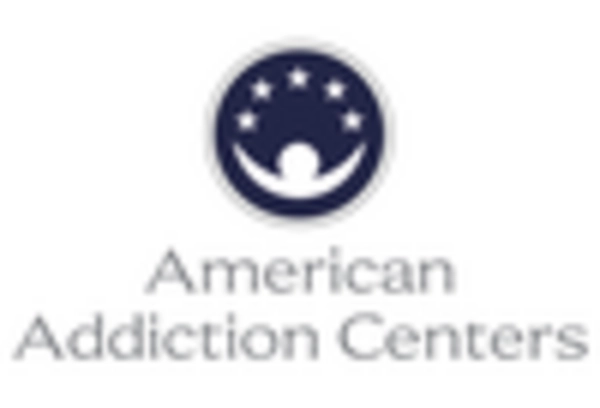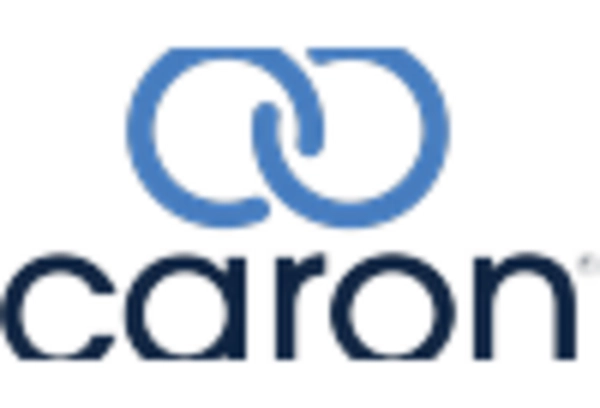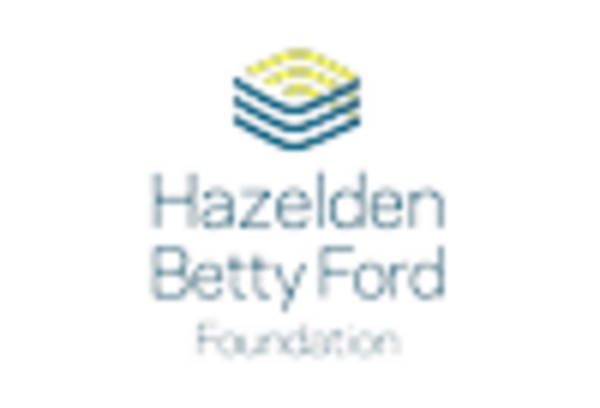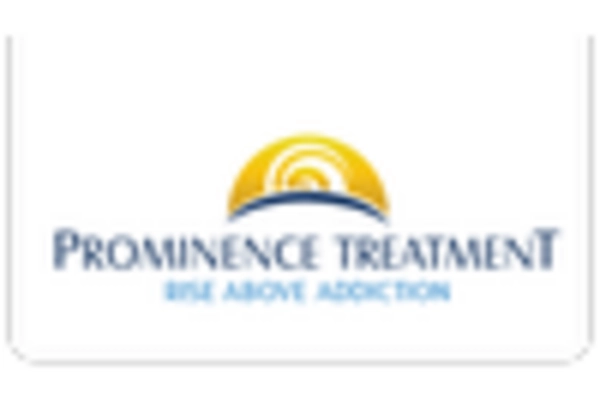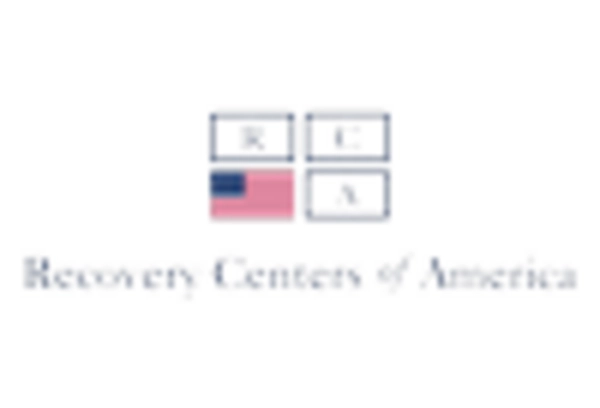Policy Reforms and Funding
Recent policy reforms in Japan have significantly impacted the addiction treatment market. The government has increased funding for addiction treatment programs, aiming to improve access to care and reduce the stigma associated with seeking help. In 2025, the budget allocation for mental health and addiction services is projected to rise by 15%, reflecting a commitment to addressing these critical issues. This financial support enables the establishment of more treatment facilities and the hiring of qualified professionals, which is essential for effective care. The addiction treatment market is likely to experience growth as these reforms facilitate better service delivery and encourage individuals to pursue treatment.
Emergence of Telehealth Services
The emergence of telehealth services represents a transformative driver for the addiction treatment market. In Japan, the adoption of digital health solutions has accelerated, particularly in the realm of mental health and addiction treatment. Telehealth offers patients convenient access to therapy and counseling, which is particularly beneficial for those in remote areas or with mobility challenges. Recent data indicates that telehealth utilization in mental health services has increased by 30% in the past year. This trend is expected to continue, as more providers integrate telehealth into their service offerings. The addiction treatment market stands to gain from this shift, as it enhances accessibility and reduces barriers to care.
Rising Awareness of Addiction Issues
The growing awareness of addiction issues in Japan is a crucial driver for the addiction treatment market. Public campaigns and educational programs have increased understanding of addiction as a health condition rather than a moral failing. This shift in perception has led to a higher demand for treatment services. According to recent statistics, approximately 1.2 million individuals in Japan are estimated to suffer from substance use disorders, highlighting the urgent need for effective treatment options. As awareness continues to rise, more individuals are likely to seek help, thereby expanding the market. The addiction treatment market is poised to benefit from this trend, as healthcare providers and policymakers focus on developing comprehensive treatment strategies.
Cultural Shifts Towards Mental Health
Cultural shifts in Japan towards prioritizing mental health are influencing the addiction treatment market. Traditionally, mental health issues have been stigmatized, but recent societal changes are fostering a more open dialogue about mental health and addiction. This evolving cultural landscape encourages individuals to seek help without fear of judgment. Surveys indicate that 60% of the population now views mental health treatment as essential, which is a significant increase from previous years. As societal attitudes continue to evolve, the addiction treatment market is likely to see a rise in demand for services that address both addiction and mental health, leading to more integrated treatment approaches.
Increased Collaboration Among Stakeholders
Increased collaboration among various stakeholders is emerging as a vital driver for the addiction treatment market. Partnerships between government agencies, non-profit organizations, and healthcare providers are becoming more common, facilitating a comprehensive approach to addiction treatment. These collaborations aim to share resources, knowledge, and best practices, ultimately enhancing the quality of care. For instance, joint initiatives have been launched to provide training for healthcare professionals in addiction treatment methodologies. This collaborative effort is expected to improve treatment outcomes and expand the reach of services. The addiction treatment market is likely to benefit from these synergies, as they create a more cohesive and effective treatment landscape.
